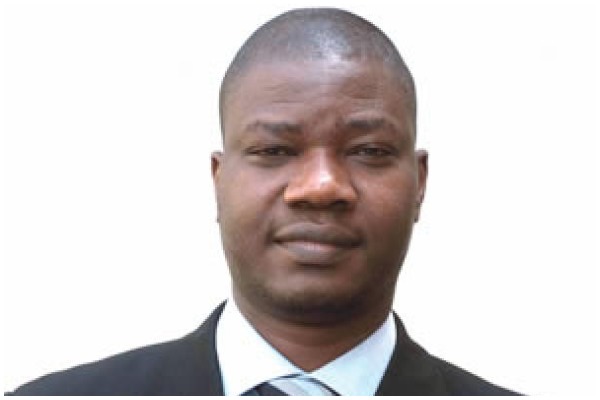
The Nasir El Rufai-led True Federalism Committee set up by the All Progressives Congress to look into the issue of restructuring submitted its reports to the National Working Committee on Thursday, January 25, 2018. The committee in its reports called for more devolution of powers to the states and urged that the police and prisons be moved from the Exclusive to the Concurrent List. According to the report, the state government would be allowed to establish state police to handle certain crimes as well as state prisons.
The committee equally recommended independent candidacy but with a clause that individuals who intend to stand for elections must not have been a member of any political party at least six months prior to the elections in which they intend to contest. On local government autonomy, the committee said since “one size does not fit all,” the states should be allowed to legislate for local governments, including creating more councils. Former President Muhammadu Buhari was not a proponent of restructuring or the devolution of power. In his eight years as president, he never initiated a constitutional amendment to facilitate this. Surprisingly, he had the highest number of constitutional alterations to his name.
In 2018, despite being private member bills of the National Assembly, Buhari signed into law five constitutional alterations. Notable among them is age reduction for presidential, House of Representatives and State Houses of Assembly candidates under the Not-Too-Young-To- Run bill. Presidential age qualification was reduced from 40 to 35, while that of House of Reps and State Houses of Assembly was reduced from 30 to 25 years. In March 2023, Buhari signed into law 16 constitutional alterations. Three of them have to do with devolution of powers. They are the removal of railway, prisons (now correctional centres), and electricity from exclusive to concurrent legislative list.
The incumbent President, Asiwaju Bola Tinubu, is a known democrat. He fought tooth and nail with fellow comrades to ensure return to civil rule in 1999 as a prominent member of the National Democratic Coalition. He is a known advocate of restructuring. In fact, at the Third Annual Abiola Ajimobi Roundtable on November 16, 2020, he delivered a profound speech titled, “The time for restructuring is now.” I was one of the discussants at the event which was held at the International Conference Centre of the University of Ibadan, Oyo State.
At the roundtable, Asiwaju said inter alia, “Our system remains too centralised with too much power and money remaining within the federal might. This imbalance leads to relative state weakness. We need to overhaul how revenues are allocated between the states and the Federal Government. Here I must state what for many of us may seem a novel idea. But this concept is one that has directed the fiscal policies of other nations for several decades. If we are to catch these other nations in development, it is a prerequisite that we match them in the efficiency of governmental fiscal roles and operations regarding the national government and our subnational political units.”
Tinubu said further that it was imperative that states were given more revenue so that they could do more things. “I do not advocate a blank check for states. The more revenue they get, the more they must do and the more they assume the responsibility to use that revenue wisely because the very fate of their people is at stake.” He also said, “The time for state police has come. In fact, it is overdue. This important change requires more funds in state hands, less in federal.”
According to the Jagaban of Borgu, “Other items such as stamp duties for financial transactions, tourism, and the incorporation of businesses should also occur at the state level and be removed from the federal charge. Perhaps the single most important factor in economic development is power generation. States currently are shut out from this vital sector even though the nation suffers a paucity of power. States must be allowed to engage in power generation as long as their efforts are consistent with and do not undermine federal labours in this sector.”
On June 10, 2023, President Bola Tinubu assented to the electricity bill, which authorises states, companies and individuals to generate, transmit and distribute electricity. The new electricity law repeals the Electric Power Sector Reform Act which was signed by former President Olusegun Obasanjo in 2005. The new Act consolidates all legislations dealing with the electricity supply industry to provide an omnibus and ideal institutional framework to guide the post-privatisation phase of the Nigerian Electricity Supply Industry and encourage private sector investments in the industry. It also provides a framework for the improvement of access to electricity in rural, unserved, underserved, peri-urban and urban areas through the use of conventional sources and renewable energy off-grid and mini-grid solutions.
Earlier this month, precisely on August 8, Tinubu inaugurated the Presidential Committee on Fiscal Policy and Tax Reforms in Abuja. At the inauguration the president said among other things that, “Within the scope of this mandate, the committee shall have as its objective the advancement of viable and cost effective solutions to issues such as the multiplicity of revenue collection agencies, the high cost of revenue administration, the excessive burden of compliance on ordinary taxpayers, the lack of effective coordination between fiscal and other economic policies within and across levels of government and poor accountability in the utilisation of tax revenues.”
Despite these two commendable initiatives, there is no codified document that speaks to the president’s restructuring agenda. For instance, does the president still believe in state police and fiscal federalism? How does he want to go about it? If he wants to achieve the devolution of power, what are the processes he intends to take and what timelines are we looking at? The president is already mouthing reduction in the cost of governance, how does he want to achieve that? Is it by merely reducing the number of delegates to the UN General Assembly in New York next month? What is his take on the reduction of the presidential air fleet and motorcade? Any plan to implement the Steve Oronsaye Report of 2011? There are estimated over 1,400 Ministries, Departments and Agencies at the federal level. Any plan to reduce this number?
Is there any consideration of Tinubu’s presidency granting resource control to states? What is his take on the collection of Value Added Tax and distribution which was a contentious issue under the immediate-past president? What are the parameters of his fiscal federalism? Again, what is the president’s take on local government reform, especially financial autonomy for the local governments? Remember, the president, as governor of Lagos State, was the first to create Local Council Development Areas (37 in addition to 20 LGs of the state making 57). Lagos State is also the only state in Nigeria that has four-year tenure at the local government level. How does the president intend to plug revenue leakages, wastefulness and corruption in government? The Tinubu administration clocked 90 days yesterday and there is a popular saying that you must set forth at dawn. Thus, it’s important for the president to share his restructuring agenda and timeline with the public for possible input.
X: @jideojong





